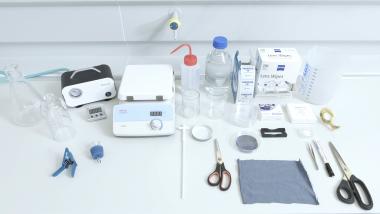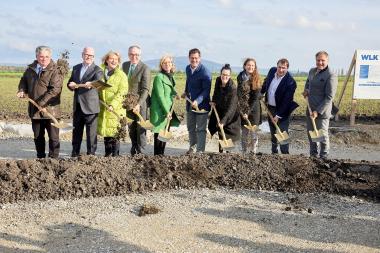CARBIOS: €1.2M to further optimize its PET depolymerization process
CARBIOS, a pioneer in the development and industrialization of biological technologies to reinvent the life cycle of plastic and textiles, has received an initial payment of €1.2 million from the French Agency for Ecological Transition (ADEME) for the OPTI-ZYME research project, carried out in partnership with INRAE2, INSA3 and CNRS4 via the TWB5 joint service and TBI6 research units, a project co-funded by the French State as part of France 2030 operated by ADEME. With CARBIOS' aim to optimize and continuously improve its unique enzymatic PET depolymerization technology, the 4-year7 OPTI-ZYME project aims to investigate the scientific and technical levers for improving the competitiveness of the process, optimizing the necessary investments and reducing its environmental footprint.
This collaborative R&D program focuses on the technical and economic optimization of process stages, while preserving the quality of the monomers obtained. These optimizations, new developments and the exploration of innovative solutions should enhance the technology's flexibility with regards to incoming waste. Raw materials could come from different sources that are currently rarely or not recycled, notably food trays and textiles, or a mix of incoming materials. It also aims to limit input and water consumption, as well as regenerate or reduce co-products and ultimate residual waste. Finally, it seeks to support enzyme optimization to maximize the process’ economic profitability and competitiveness.
The project therefore aims to achieve an overall improvement in performance, combining efficiency, quality and environmental sustainability, to benefit the Longlaville plant which is currently under construction, and future licensed plants.
In May 2023, CARBIOS, the project leader and coordinator, announced that it had been awarded a total of €11.4M in funding by the French State as part of France 2030, operated by ADEME, including €8.2M directly for CARBIOS (€3.2M in grants and €5M in repayable advances) and €3.2M for its academic partners INRAE, INSA and CNRS (via the TWB mixed service and TBI research units). This funding, which is made up of grants and repayable advances, will be paid out in several instalments over the course of the project, including an initial instalment of 15%, equivalent to €1.2 million, received by CARBIOS on 5 December 2023. The first Monitoring Committee with ADEME for the first key stage of the project will be held in February 2024 to validate the granting of the second instalment of funding.
This project 2282D0513-A is funded by the French State as part of France 2030 operated by ADEME.
Carbios





























